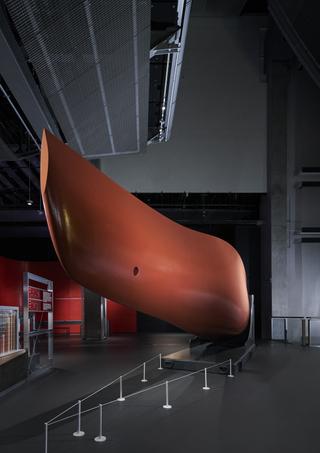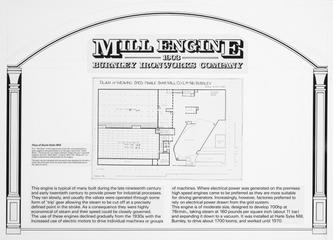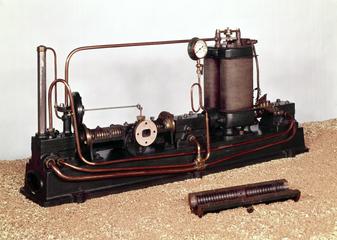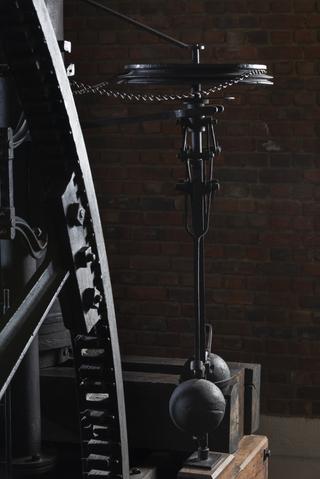
Drawing of Savery's Pumping Engine 1698
- maker:
- Science Museum
Drawing of Savery's Pumping Engine 1698
In 1698 Thomas Savery patented an apparatus ‘for raising of water and occasioning motion to all sort of mill works, by the impellent force of fire’. No drawing of the arrangement was deposited, but in the following year a model of the machine was shown at the Royal Society, and is illustrated in their Philosophical Transactions. The apparatus in its simplest form consisted of a high-pressure boiler supplying steam to a receiver, which was provided with suction and delivery pipes and the corresponding valves. By means of a regulator valve worked by hand, steam from the boiler was admitted into a receiver and allowed to blow through it till the air had been expelled; then the supply of steam was cut off and cold water from a cistern above was turned on to the receiver which, acting as a surface condenser, condensed the steam, so forming a partial vacuum into which the water rose from the suction pipe, the delivery orifice being at the same time sealed by its valve; the entering water further assisted in this condensation. Steam was then again admitted, and by its pressure forced the water in the receiver out through the delivery valve and pipe, the suction pipe in the meantime being closed by its non-return valve. (See Phil. Trans. XXI. 1699, p. 228.)




